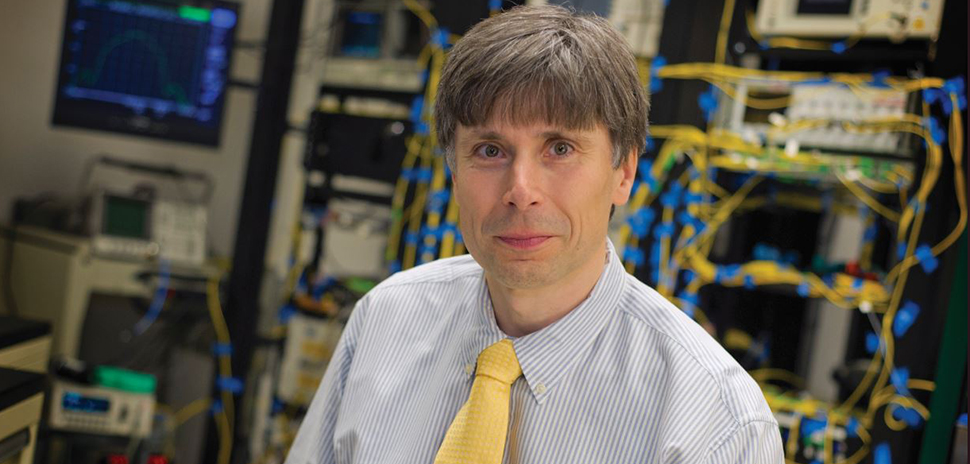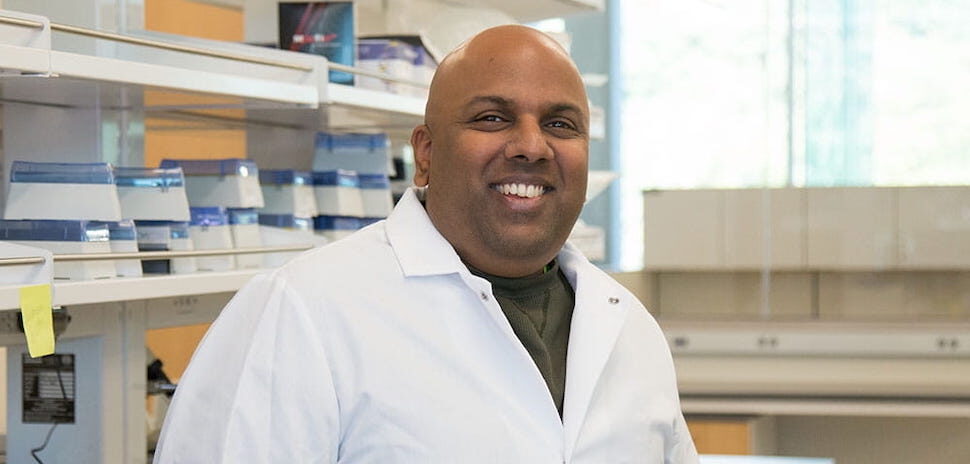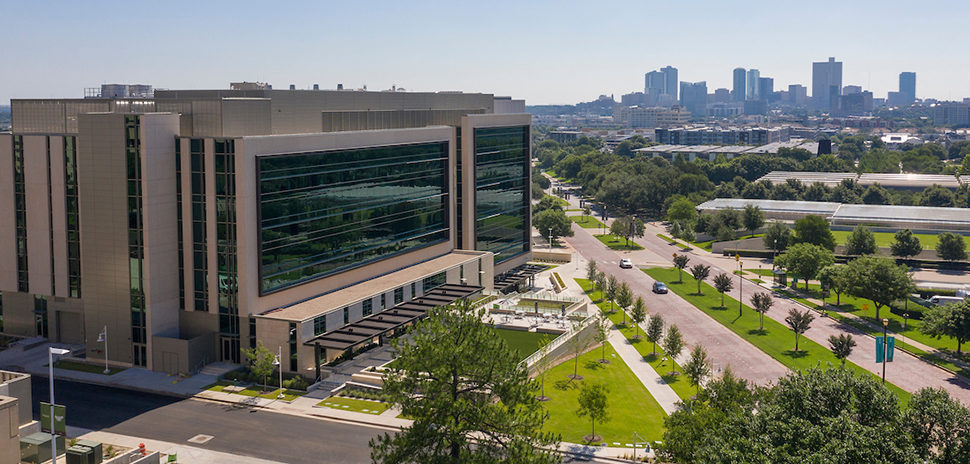As a Carnegie R1 research university, the University of Texas at Arlington often is a leader in important scientific work and a new $800,000 project funded by the National Science Foudation could expand the university’s profile nationally and around the world.
Michael Vasilyev , an electrical engineering professor at UT Arlington will head an NSF-backed project to expand research and education in quantum information science and engineering.
UT Arlington will team with Northwestern University on the project, which is part of NSF’s Expanding Capacity in Quantum Information Science and Engineering (ExpandQISE) program.
“Future quantum computers will be able to perform certain tasks, like database search optimization or code breaking, much faster than classical computers,” Vasilyev, who has been at UTA since 2003, said in a statement.
“Our work focuses on quantum communications links that lay down the foundation for interconnecting such future quantum computers. These links are based on quantum properties of light particles and photons and can also be used for secure information exchange that is completely impossible to eavesdrop on.”
Research and education in quantum information science and engineering have the potential to drive significant advancements in a wide range of fields. Quantum information technology uses the principles of quantum mechanics to encode, transmit, and manipulate information. The tech offers the potential for transformation in computing, communication, and sensing.
Maximizing Quantum Communication Through Shaping Light
Vasilyev is the principal investigator in a project titled, “Quantum information exchange over spatially-multimode and multi-core optical fibers,” the university said.
Vasilyev said single quantum communications link’s capacity is limited by light loss in optical fiber.
“We can improve this capacity by taking advantage of spatial degrees of freedom of light,” he said. “For example, we can make beams of different shapes co-propagate in the fiber. This effectively makes multiple quantum communication links over the same optical fiber.”
UTA Nurtures the Next Generation of Experts
Vasilyev said the highly competitive grant shows NSF’s willingness to expand the study of quantum information technology to universities that are aspiring to become major players in the field.
UT Arlington said that one purpose of the ExpandQISE program is securing a talent pipeline in a field where workforce needs of industry, government, and academia are outgrowing the available talent.
“I’m excited about this opportunity to help UTA build the capacity for quantum information research and education in the North Texas area,” Prem Kumar, the project’s co-investigator from Northwestern’s McCormick School of Engineering, said in a statement.
“UT Arlington already has a world-class research program in classical optical communications. We are looking forward to the student exchanges between our two institutions to share the classical and quantum expertise and to train renaissance engineers who would be well-prepared to drive 21st-century quantum applications.”
NSF Grant Boosts UTA’s Profile in the Field
Diana Huffaker, chair of the Department of Electrical Engineering at UT Arlington, said the grant represents an opportunity for UTA to expand its reach nationally and internationally.
“This grant builds the strong foundation for UTA’s future research and education in quantum information field,” Huffaker said in a statement. “We’re looking forward to partnering with Northwestern and seeing what projects are furthered by this.”
UTA said that in a separate NSF grant, it is partnering with Northwestern’s Materials Research Science and Engineering Center to develop new functional materials for energy and semiconductor applications.
![]()
Get on the list.
Dallas Innovates, every day.
Sign up to keep your eye on what’s new and next in Dallas-Fort Worth, every day.




![At the Fourth Annual iC3 Life Science Summit at UT Arlington on Oct. 10, 2017 recipient Lyda Hill will present the award. To register for the summit, visit www.bionorthtx.org. [Illustration: bestbrk/istockphoto]](https://s24806.pcdn.co/wp-content/uploads/2018/09/Bionorthconcept_970_bestbrk_istockphotovector-molecule-background-genetic-and-chemical-compounds-abstract-vector-id908258902-264x350.jpg)


























